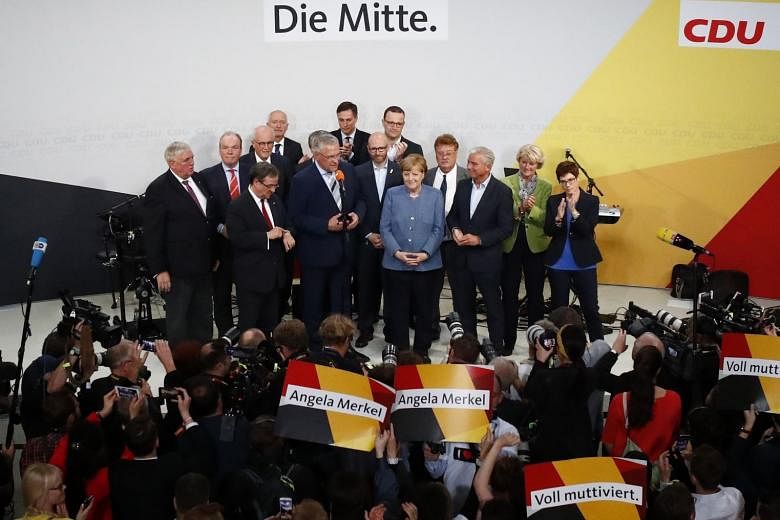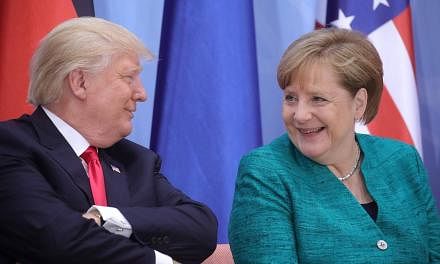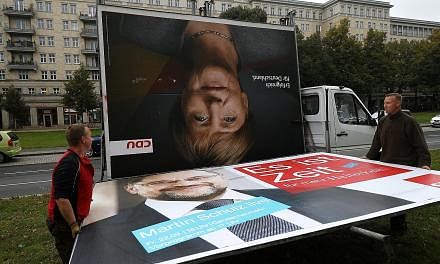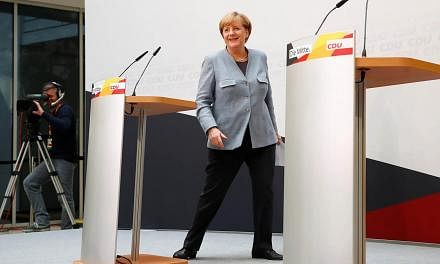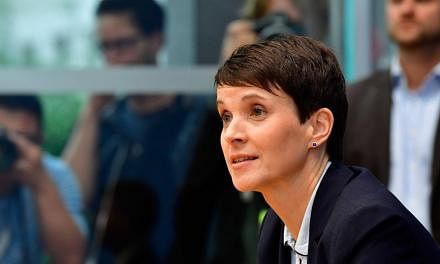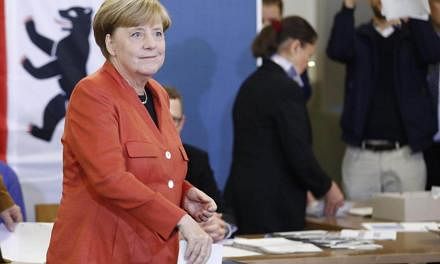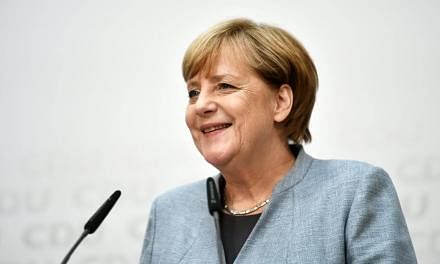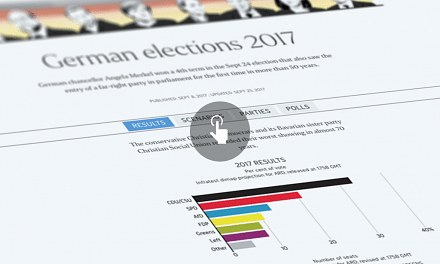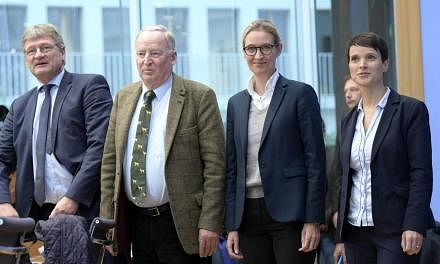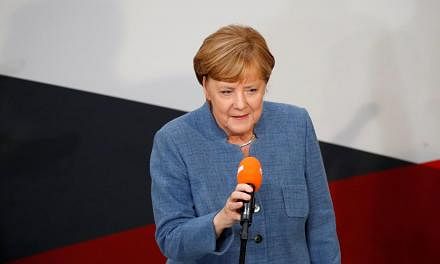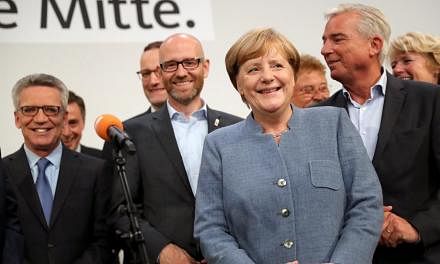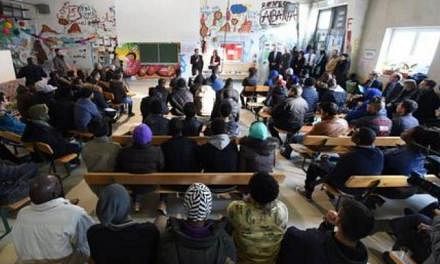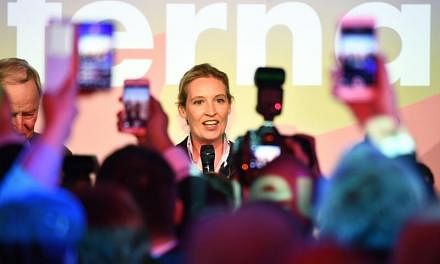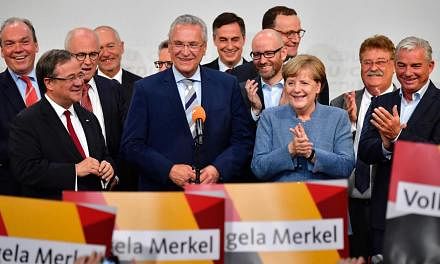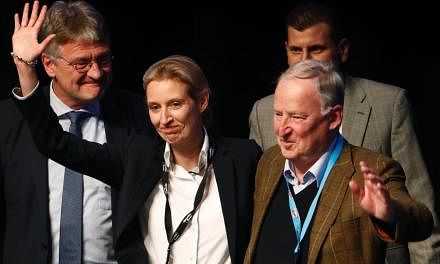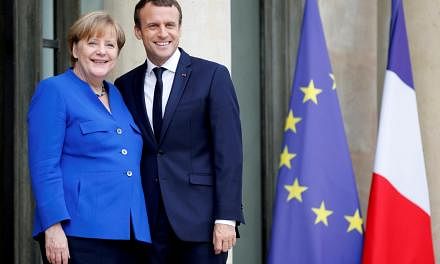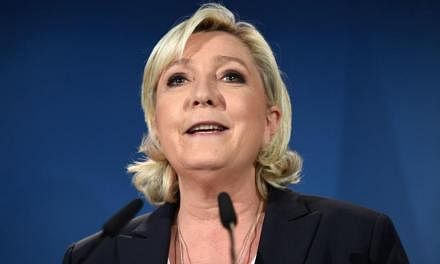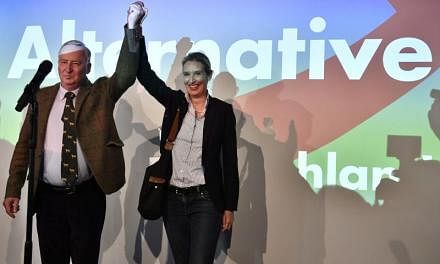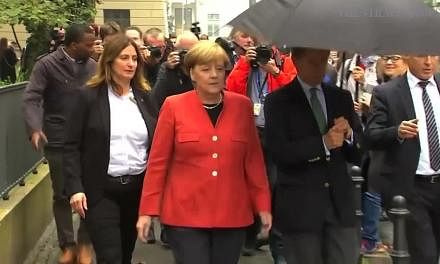BERLIN • German Chancellor Angela Merkel began the tough task of trying to build a coalition government yesterday after securing a fourth term in office in an election which saw her support slide and the far right making significant gains.
Damaged by her decision in 2015 to allow one million refugees into the country, Dr Merkel's conservative Christian Democratic Union (CDU) secured 33 per cent of the vote, losing 8.5 points - its lowest vote level since 1949.
Her coalition partners, the centre-left Social Democrats, saw their share of the vote slump to 20.5 per cent, and said they would go into opposition.
"All parties have a responsibility for forging a stable government," Dr Merkel said at a news conference in Berlin yesterday.
"I acknowledge the SPD's position, but we need to remain in contact. What is important is that we get a good, stable government."
Dr Merkel made clear she still intended to serve a full four years as chancellor. But her next coalition could be her toughest yet, with her only remaining potential partners, the business-friendly Free Demo-crats (FDP) and the pro-regulation Greens, at odds on issues from migrants and tax to the environment and Europe.
FDP leader Christian Lindner set the stage for tricky talks, saying his party would not agree to a coalition with the conservatives and the Greens, dubbed "Jamaica" because the parties' colours mirror the Caribbean nation's flag, at any price. He said changes were needed in Germany's energy policy and its stance on euro zone fiscal policy.
The Greens set out climate change, Europe and social justice as their priorities in any talks.

Sunday's election saw voters flocking to the anti-immigration Alternative for Germany (AfD), the first far-right party to enter the German Parliament in more than half a century.
Its leading candidate Alexander Gauland gave a foretaste of the hostile new tone expected in Parliament, saying it would "hound" Dr Merkel and "get our country and our people back".
Many Germans see the rise of the AfD as a similar rejection of the status quo as votes for Brexit and US President Donald Trump last year.
Investors are unsettled by the prospect of a weaker Dr Merkel at the head of a potentially unstable coalition with the FDP and Greens.
They are also worried that months of coalition talks could distract from negotiations with Britain over its divorce from the European Union and efforts to push further integration. The euro and European stocks slipped yesterday.
"The weak result could make Angela Merkel a lame duck much faster than international observers and financial markets think," ING economist Carsten Brzeski said.
Many Germans were alarmed by the rise of the AfD, a party likened by their foreign minister to Nazis.
In a Facebook post early yesterday, Singapore Deputy Prime Minister Tharman Shanmugaratnam said the election results were a major setback not just for Dr Merkel, but also "for Germany, and for the politics of moderation".
Mr Tharman also called the presence of a far-right party in the German Parliament for the first time in decades "a worrying shift, and a challenge to the moderation and consensus-driven culture of Germany's political landscape".
Sunday's election also exposed divisions in Dr Merkel's conservatives, with her allies the Bavarian Christian Social Union (CSU) demanding a shift to the right to win back voters lost to the AfD. The CSU, which lost heavily to the AfD in Bavaria, faces regional elections next year.
REUTERS, BLOOMBERG
